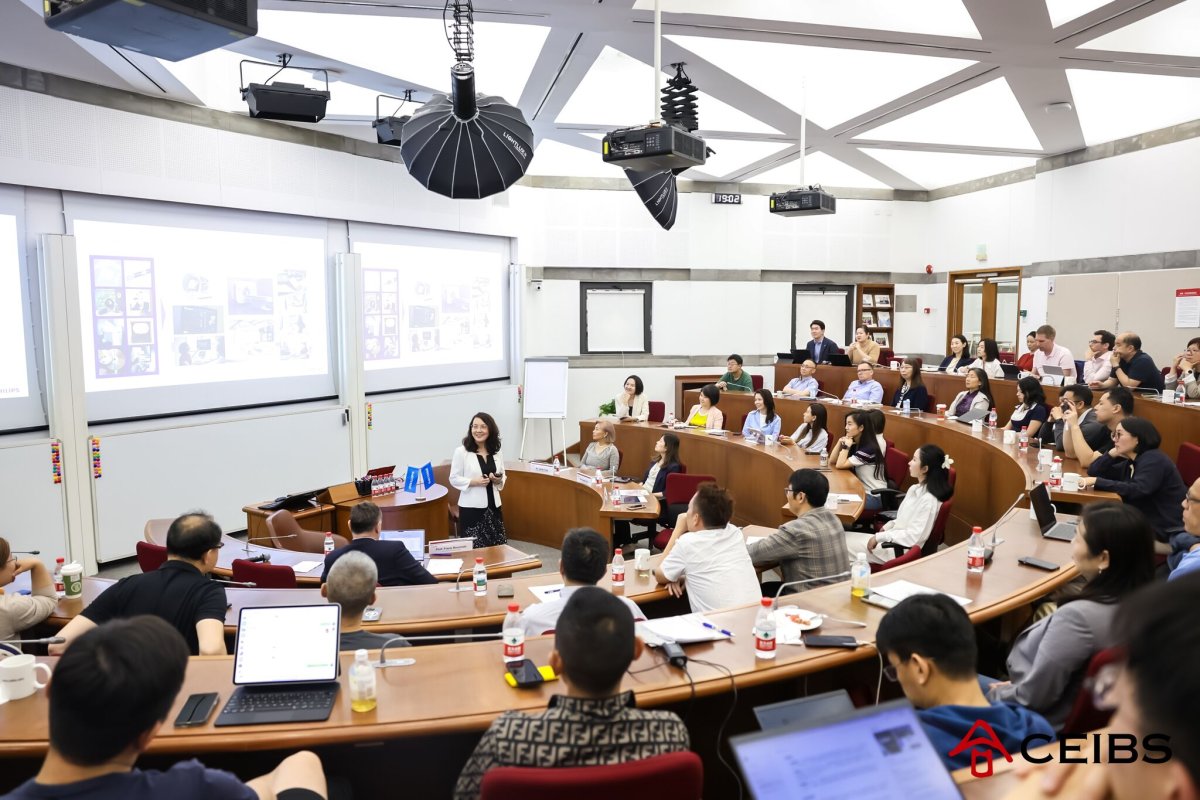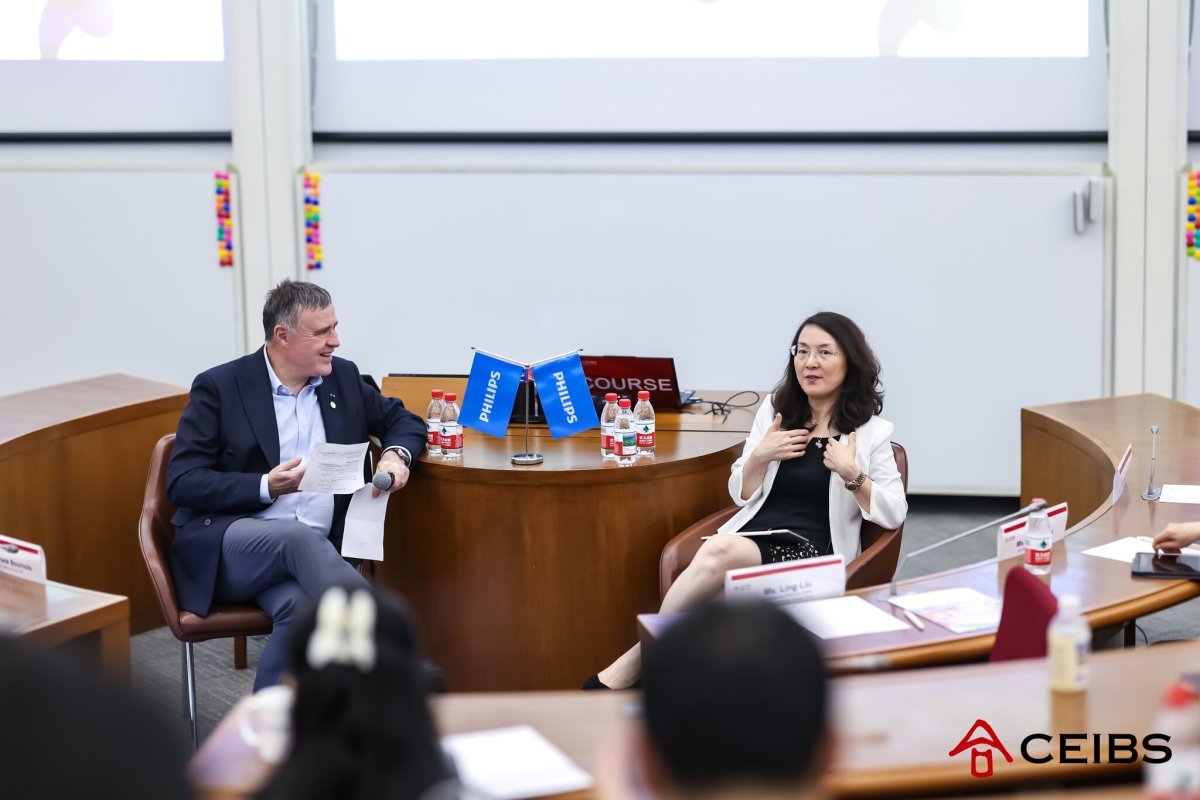Leading with impact in China’s healthcare market
May 19, 2025. Shanghai – In a world shaped by rapid innovation and shifting priorities, healthcare companies are being tested on their ability to remain agile, adaptive, and driven by purpose.
At a recent CEIBS Executive Forum, Executive Vice President of Philips and President of Philips Greater China Ms. Ling Liu joined us on the CEIBS Shanghai campus for a talk on “Leading with Impact in a Changing China: Strategy, Purpose and Leadership in Uncertain Times”.
Drawing on 27 years of international experience across North America, Europe, and China, Ling shared how Philips thrives in the Chinese market by continuously accelerating innovation, prioritising localisation, and aligning with China’s long-term vision for a healthier future. She also offered invaluable insights on how she leads with impact and clarity in today’s rapidly evolving global environment.
“I declare myself locally made, globally trained,” Ling said, recalling her journey from joining Philips in 1998 to becoming the first local President for Greater China of the company.
Having risen to prominence as a diversified electronics firm, Philips has over time transformed into a global health technology leader with innovation at its core. Today, it stands out as the only company with a combined portfolio spanning from prevention and diagnosis to treatment and aftercare.
With a legacy in China lasting more than a century, Philips has deep roots in the market. “China is our second-largest market next to the North America,” Ling said, highlighting that China is not only a market that offers vast demand, but is also a key driver of value creation thanks to its vast population and large reserves of clinical data, making it uniquely positioned to drive global health innovation.
“Our goal is to accelerate the introduction of breakthrough technologies into China, while also positioning China as a global innovation hub, particularly in areas like AI and software,” she explained. “The partnership ecosystem in China is also crucial: customers, clinicians, peers, and vendors all collaborate to improve lives.”
Thriving in China
Ling then outlined Philips’ three strategic imperatives in their drive to win one of the most dynamic markets in the world:
- Strategic choices: Choose the lanes in which to run, and the right lane in which to win, while focusing on the areas in which innovation is most important.
- Competitiveness: Relentless drive for competitive advantage is key; competitiveness is the new China identity.
- Execution: To remain competitive, it is vital to keep pace with Chinese execution and speed; talent is also critical, and companies must ensure a capable, engaged, and motivated team.
Success in these key pillars is made possible through what she calls the “Ring-fencing China” strategy - an organisational commitment to empowering local teams with the authority, agility, and trust needed to lead independently.
“The success of multinational companies in China requires agility and empowerment, which means how do you view China from a global perspective? Is it only a region, or an executional arm?” she asked. “Ring-fencing means that the Chinese teams are agile, accountable, authorised to make decisions and collaborate closely. That’s how we ensure we’re not just in China, but truly of China.”
Successful Execution through Company Culture
At the heart of Philips’ success, Ling emphasised, is a culture that makes execution successful.
“At Philips, we drive impact with care. We think about outcomes before acting, and care for all stakeholders: customers, consumers, clinicians, and our own people.”
Ling also emphasized the importance of key cultural elements that create a joint impact of achieving results while caring about people. "Everything I discuss, including clarity, execution focus, and accountability, should be evident in my actions, as a true leader is primarily a role model," she said.
Playing to Win
At the core of this culture, she added, is ultimately the goal of building an organisation that plays to win.
“Winning spirit is crucial. Play to win, not just to avoid losing,” she said. “Everyone has strengths; it’s about playing the strength to the best, and you’ll turn those into rewarding results,” Ling explained, adding that playing to win is a cultural message that is especially important in China.
Her leadership style, she shared, is rooted in authenticity, empathy, and adaptability. As she put it, “Authenticity is vital. It’s about telling people the truth and creating a safe environment for others. Empathy is listening deeply, understanding people, and motivating them to give their best. Adaptability is necessary in taking every challenge as an opportunity for growth.”
The event also featured a fireside chat between Ling and CEIBS Vice President and Dean Frank Bournois and a lively Q&A that further explored topics ranging from regionalised supply chains to leadership development and women in executive roles.















